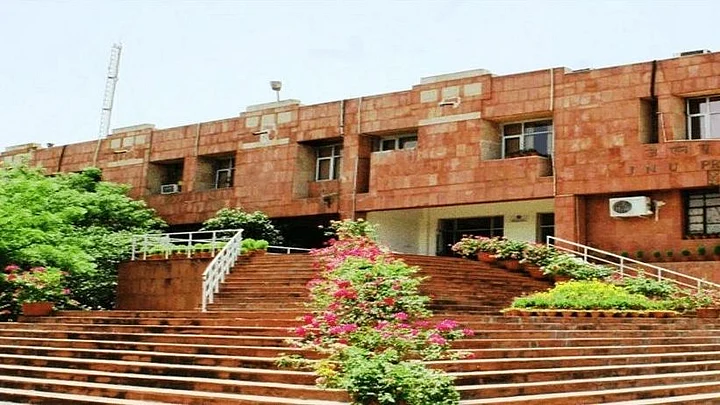In a new set of rules, the Jawaharlal Nehru University (JNU) administration has imposed penalties for dharnas and protests. The 10-page document ‘Rules of Discipline and Proper Conduct of Students of JNU’ stipulates that students can have their admission cancelled or might have to pay a fine of Rs 20,000 for staging demonstrations.
Further, if they resort to violence or engage in acts that incite violence, they will be levied harsher fines. The rules state that they have been approved by the Executive Council. They also state that the rules have been effective since 3 February but many students told The Quint that they found out about these rules on Wednesday, 1 March.
What Do the Rules Say About Demonstrations?
The rules state that “gheraos”, “laying siege or staging demonstrations around the residence of any member of the University Community” and “intimidation or disturbance of right to privacy of the residents of the campus” can lead to the following punishments -
1. Cancellation of admission or withdrawal of degree or denial of registration for a specified period.
2. Rustication up to four semesters period and/or declaring any part or the entire JNU campus out of bounds.
3. Expulsion.
4. Fine of up to Rs 20,000.
5. One semester eviction from the hostel.
The Fines for Any Kind of Violence or Acts That Incites Violence:
The rules state that “all acts of violence and all forms of coercion such as gheraos, sit-ins or any variation of the same which disrupt the normal academic and administrative functioning of the University and or any act which incites or leads to violence,” can give rise to the same penalties listed above. The fines however, can go up to Rs 30,000.
The rules also state that students can be fined up to Rs 20,000 for hunger strikes, group bargaining and any other form of protest by blocking entrance or exit of the complexes.
What Were the Old Rules?
The old rules stated that the punishment for gheraos, demonstrations and sexual harassment included cancellation of admission, rustication and expulsion.
Student Communities Retaliate:
N Sai Balaji, National President, AISA (All India Students Association) told The Quint that the move is “undemocratic”. He said, “There are ways to look at it, one is in principle – the idea is undemocratic because it is against all forms of dissent. The second is that it is a strategic move. The administration will implement anti-student policies, and students will not be able to do anything about it.”
ABVP JNU President Umesh Chandra Ajmeera referred to the new rules as “Tughlaqi" in nature. He said, “Heavy penalties/punishment and fines have been imposed for trivial offences. The code imposes fines and punishment for democratic activities such as protesting, raising issues in front of authorities, taking photocopies of books. We believe that rustication, suspension from academic and hostel facilities must be done only after two to three committees recommend such punishment and not randomly. We demand complete roll back of this draconian measure.”
